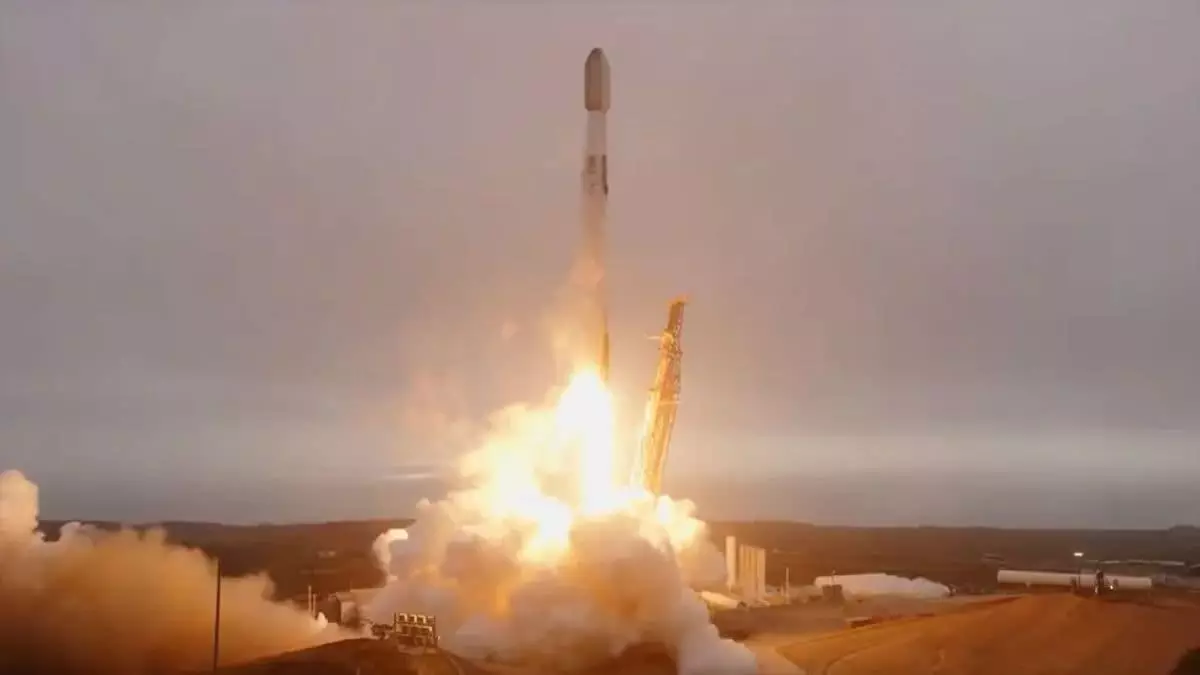In the ever-evolving landscape of global communication, SpaceX has recently pushed the boundaries of possibility with yet another successful launch of its Starlink satellites. On a seemingly routine Thursday evening, the company dispatched 26 new spacecraft into the celestial arena, adding to an already expansive constellation, which now boasts over 7,600 active satellites orbiting our planet. While many celebrate this venture as a triumph of modern technology and ambition, one must ask— is this relentless pursuit of connectivity truly beneficial, or does it harbor deeper implications that we must confront?
Efficiency At What Cost?
SpaceX has garnered a reputation for impeccable operational efficiency, exemplified by the reuse of its Falcon 9 rocket boosters. The most recent launch showcased the versatility of booster B1081, which completed its 15th successful flight, a remarkable feat in the annals of aerospace engineering. The reusability of rockets presents not only an opportunity for cost reduction but also a nod to sustainability in space exploration. Yet, while SpaceX heralds these accomplishments as milestones in innovation, it is crucial to dissect whether this obsession with rapid advancement may come at an environmental and ethical cost.
The deployment of thousands of satellites in low Earth orbit has raised valid concerns regarding space debris and the potential for catastrophic collisions. The unregulated expansion of a megaconstellation such as Starlink invites questions about the sustainability of our orbital environment. Are we charting a course that prioritizes speed and volume over careful, thoughtful stewardship of our planet’s space?
Accessibility Vs. Privacy: A Double-Edged Sword
One of the most lauded attributes of the Starlink initiative is its promise of high-speed internet access, particularly in remote regions. SpaceX’s goal of providing connectivity where traditional infrastructure falls short is undoubtedly noble and has the potential to bridge significant gaps in digital equity. However, this ambition introduces another layer of complexity regarding privacy and data security in an increasingly connected world.
As SpaceX continues to expand its offerings—including direct-to-cell services on a limited basis—one cannot ignore the implications of an omnipresent internet service provider. Will our online interactions be subject to intense scrutiny, given the monolithic nature of companies that hold a monopoly on internet access? The convenience that Starlink provides could quickly transform into an exploitation of data privacy, reshaping the liberties that should accompany digital freedom.
Elon Musk’s Vision: Utopia or Dystopia?
Elon Musk’s relentless drive for technological advancement positions him as both a visionary and a polarizing figure. As SpaceX expands Starlink, engaging in potentially groundbreaking applications like in-flight connectivity and emergency response communications, one cannot overlook the potential dystopian ramifications that follow such unparalleled power. The merging of technology with human life persists, but at what point does the innovation curve spiral into a loss of human agency and dignity?
The excitement surrounding SpaceX and its bold ventures cannot obscure the pressing ethical questions. With such immense power and ground-breaking technology comes an enormous responsibility. The magic of a truly connected world should not come with strings attached to privacy violations and irresponsible space governance. As we stand at the crossroads of innovation and ethics, it is imperative that society engages in this dialogue, ensuring that connectivity does not become a synonym for vulnerability.



Leave a Reply